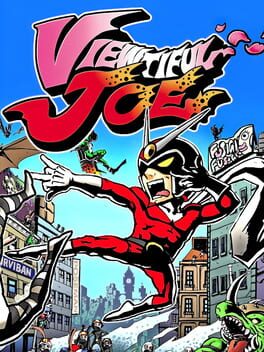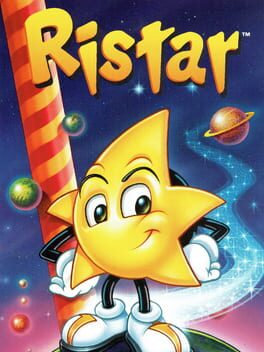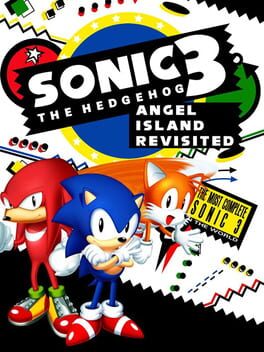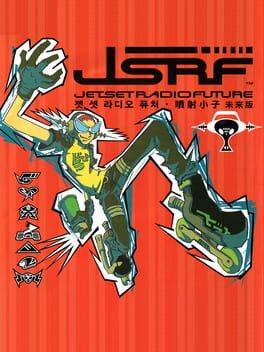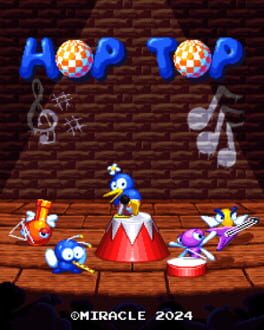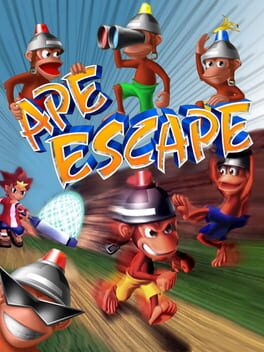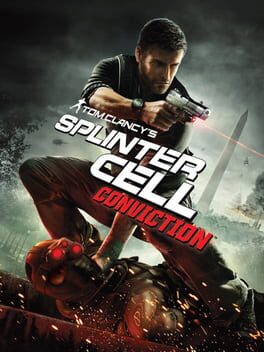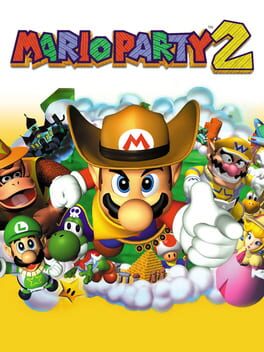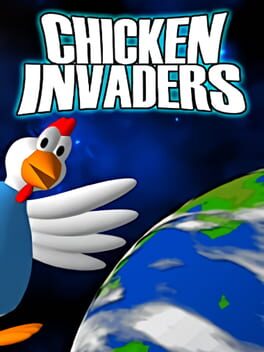JetSetSet
Bio
I love video games. Maybe a little too much. Hopefully you love them too!
I love video games. Maybe a little too much. Hopefully you love them too!
Badges

Adored
Gained 300+ total review likes

GOTY '23
Participated in the 2023 Game of the Year Event

Pinged
Mentioned by another user

Trend Setter
Gained 50+ followers

Shreked
Found the secret ogre page

GOTY '22
Participated in the 2022 Game of the Year Event

Loved
Gained 100+ total review likes

Popular
Gained 15+ followers

3 Years of Service
Being part of the Backloggd community for 3 years

Well Written
Gained 10+ likes on a single review

Gone Gold
Received 5+ likes on a review while featured on the front page

Liked
Gained 10+ total review likes

Best Friends
Become mutual friends with at least 3 others

Donor
Liked 50+ reviews / lists

Noticed
Gained 3+ followers

Elite Gamer
Played 500+ games

Gamer
Played 250+ games

N00b
Played 100+ games
Favorite Games
787
Total Games Played
003
Played in 2024
057
Games Backloggd
Recently Played See More
Recently Reviewed See More
HOP TOP meshes the enemy formations and attack patterns from games like Galaxian and the nonstop jumping from games like Icy Tower and Doodle Jump to create a new kind of arcade-inspired title. The need to watch your footing while making sure to blast enemies attacking from above creates a tense but easily digestible multitasking challenge where both the top and bottom of the screen are of equal importance. Each of the game's enemy types provide unique threats but are all initially vulnerable as they come swooping into formation, similar to the aliens in Galaxian. This games the start of each round extra important, as this is where you can kill a lot of the threats before they have a chance to retaliate. Unfortunately, HOP TOP features a pet peeve of mine where you're given an auto fire option but said auto fire isn't nearly as quick as manually mashing the hell out of the fire button. Like many games of its kind, there's no inherent reason to stop firing in most cases. A couple of the game's stages feature platforms that'll collapse on top of you if recklessly fired upon, but they're few and far between. Mashing till your sore shouldn't be a key part of your game loop but if you're going after highscores, it'll have to be in HOP TOP. This becomes extra obnoxious thanks to the orange enemy type that quickly flies offscreen, only to reappear at the bottom of the screen and zoom its way back into formation. As the game progresses, you're given so little time to hit these guys that they become a real pace killer. They only stay in formation for around half a second after the first dozen rounds, and that makes them occasionally impossible to hit when the layout of ther platforms aren't in your favor, leading to more waiting. Thankfully the game does have a counter against lollygagging players by automatically scrolling the screen up if a player doesn't do it themselves for long enough, but it's a shame the game itself isn't immune to halting the player at times.
As far as balance goes, HOP TOP isn't easy but there's some leeway when it comes to generous hitboxes and the occasional appearance of power-ups that alter HOP's shots. These shot modifications can easily end a round of enemies before they even get a chance to form up, but the frequency of these power-ups (as well as score items like balloons) seems inconsistent. Maybe there's an untold logic behind their spawn rate but I would frequently play for 10 or more rounds with no power-ups in sight, while getting 2 or 3 within the span of just a handful. These power-ups don't feel vital to your success so I never felt my runs were severely affected by the game's willingness to hand me convenient power-ups, but it's a strange aspect that could maybe use some finetuning.
Otherwise, I was surprised by how well realized HOP TOP is. While you'd probably never mistake it for an actual arcade game from the 80's, the paintjob is more than solid enough to sell you on the premise. The game features two main modes; an arcade mode meant to play within the limitations of those older arcade titles (so you're given less variety in enemy waves and power-up) that feels about as pure as any golden era arcade game, and a campaign mode with a larger selection of level hazards, backed by gorgeous 32-bit art. Games last roughly 5-9 minutes from my experience, so it's always tempting to go for one more game. Hopefully we see more games try to mix and match multiple arcade classics.
As far as balance goes, HOP TOP isn't easy but there's some leeway when it comes to generous hitboxes and the occasional appearance of power-ups that alter HOP's shots. These shot modifications can easily end a round of enemies before they even get a chance to form up, but the frequency of these power-ups (as well as score items like balloons) seems inconsistent. Maybe there's an untold logic behind their spawn rate but I would frequently play for 10 or more rounds with no power-ups in sight, while getting 2 or 3 within the span of just a handful. These power-ups don't feel vital to your success so I never felt my runs were severely affected by the game's willingness to hand me convenient power-ups, but it's a strange aspect that could maybe use some finetuning.
Otherwise, I was surprised by how well realized HOP TOP is. While you'd probably never mistake it for an actual arcade game from the 80's, the paintjob is more than solid enough to sell you on the premise. The game features two main modes; an arcade mode meant to play within the limitations of those older arcade titles (so you're given less variety in enemy waves and power-up) that feels about as pure as any golden era arcade game, and a campaign mode with a larger selection of level hazards, backed by gorgeous 32-bit art. Games last roughly 5-9 minutes from my experience, so it's always tempting to go for one more game. Hopefully we see more games try to mix and match multiple arcade classics.
Ape Escape is a classic early 3D title that favors experimentation over refinement. It's two main goals are to demonstrate novel uses of the dualshock's analog sticks and to be a collectathon where the collectibles themselves offer a unique challenge. While Ape Escape partially succeeds in these goals, it's only at a surface level. Despite being a first party title, Ape Escape makes a good argument for why all expansive 3D platformers of the 5th generation that were on the PSX would've benefitted from being made for the N64 instead. This might be one of the best games of the 5th gen I've played that suffers horrendously from such a small draw distance. Actually scanning the environment for apes is largely a fool's errand when you can't see 20 feet in front of you. The aggressive texture warping doesn't help either and makes the game a bit of an eyesore to play at times. Outside of Spyro, I don't think any PSX platformers I've played have managed to avoid the common stumbling points of the system's limitations.
The game's reliance on the dualshocks' analog sticks is probably the best counterargument to the game being a better fit for Nintendo's console, but I don't think the game makes a good enough case for its unique control layout. Being a collectathon, you're expected to freely move in all directions and search for secrets. Placing camera controls on the D-pad makes the process of simply keeping the camera looking forward more of a hassle than it has any right to be but that's not really a deal breaker for me. Bad cameras and 3D platformers go hand-in-hand, after all. My real issue is how the right stick is used for your assortment of gadgets, but very few of these would lose much if they were instead mapped to a simple button press. What does rotating the stick to use the hula-hoop accomplish? What's the point of flicking the stick to use the Ultra Hand? If performing these actions is supposed to further immerse you into the game's world, then I think all the times your gadgets fail to register your inputs should balance things out and make the effort moot. The only exceptions are the Monkey Radar and the RC car. Both of these allow the player to move and use the device simultaneously, which is of little use for the radar but admittedly is necessary for a few puzzles with the RC car. You could still map these gadgets to a single button and lock the player's movement during their use and the experience wouldn't change THAT drastically. While initially charming, this is a rare case where I can't really justify the unorthodox use of the right stick.
"But what about those funny apes?" These little gremlins are what would happen if you gave the power stars in Super Mario 64 legs, and maybe an uzi for good measure. Actually collecting an ape is a tad more involved than grabbing a standard collectable since they'll flee you on sight. It's up to you to decide whether you want to sneak up and get the drop on them or just chase them down like a rabid dog. The most interesting apes are the ones hidden behind unique fortifications. Sometimes this'll be a cage you need to find a way to open, while other times an ape might be riding the back of an animal and you'll have to knock them off. Without going back to count, I'd wager there's around 20 or so apes hidden in one-of-a-kind manners. With 204 monkeys to capture, these outliers add some nice variety but aren't enough to stop the act of catching monkeys feel a bit rote after a few worlds. Too many monkeys are placed on small platforms with nowhere to run, making the whole act of having to chase after your collectibles feel arbitrary. I'll give credit to the game for giving each monkey a name and a small one sentence description. They tend to be pretty generic but occasionally you'll find a funny fact, like how one is afraid of the ocean, despite being in the water-themed world. These extra details, along with the impeccable soundtrack and colorful environments, help give the game some extra character which does go a long way in a subgenre that tends to focus so heavily on this front. I only wish the game leaned harder into the sneaking and chasing aspects and made more of the monkeys stand out instead of so many of them feeling like a formality. Still, I had a fun time and would recommend Ape Escape if you're looking for more early 3D platforming fun.
Side Tangent: The hardest thing in this game for me was the collapsing bridge in the hot springs level. You need to run at that bridge perfectly straight on or you ain't making it.
The game's reliance on the dualshocks' analog sticks is probably the best counterargument to the game being a better fit for Nintendo's console, but I don't think the game makes a good enough case for its unique control layout. Being a collectathon, you're expected to freely move in all directions and search for secrets. Placing camera controls on the D-pad makes the process of simply keeping the camera looking forward more of a hassle than it has any right to be but that's not really a deal breaker for me. Bad cameras and 3D platformers go hand-in-hand, after all. My real issue is how the right stick is used for your assortment of gadgets, but very few of these would lose much if they were instead mapped to a simple button press. What does rotating the stick to use the hula-hoop accomplish? What's the point of flicking the stick to use the Ultra Hand? If performing these actions is supposed to further immerse you into the game's world, then I think all the times your gadgets fail to register your inputs should balance things out and make the effort moot. The only exceptions are the Monkey Radar and the RC car. Both of these allow the player to move and use the device simultaneously, which is of little use for the radar but admittedly is necessary for a few puzzles with the RC car. You could still map these gadgets to a single button and lock the player's movement during their use and the experience wouldn't change THAT drastically. While initially charming, this is a rare case where I can't really justify the unorthodox use of the right stick.
"But what about those funny apes?" These little gremlins are what would happen if you gave the power stars in Super Mario 64 legs, and maybe an uzi for good measure. Actually collecting an ape is a tad more involved than grabbing a standard collectable since they'll flee you on sight. It's up to you to decide whether you want to sneak up and get the drop on them or just chase them down like a rabid dog. The most interesting apes are the ones hidden behind unique fortifications. Sometimes this'll be a cage you need to find a way to open, while other times an ape might be riding the back of an animal and you'll have to knock them off. Without going back to count, I'd wager there's around 20 or so apes hidden in one-of-a-kind manners. With 204 monkeys to capture, these outliers add some nice variety but aren't enough to stop the act of catching monkeys feel a bit rote after a few worlds. Too many monkeys are placed on small platforms with nowhere to run, making the whole act of having to chase after your collectibles feel arbitrary. I'll give credit to the game for giving each monkey a name and a small one sentence description. They tend to be pretty generic but occasionally you'll find a funny fact, like how one is afraid of the ocean, despite being in the water-themed world. These extra details, along with the impeccable soundtrack and colorful environments, help give the game some extra character which does go a long way in a subgenre that tends to focus so heavily on this front. I only wish the game leaned harder into the sneaking and chasing aspects and made more of the monkeys stand out instead of so many of them feeling like a formality. Still, I had a fun time and would recommend Ape Escape if you're looking for more early 3D platforming fun.
Side Tangent: The hardest thing in this game for me was the collapsing bridge in the hot springs level. You need to run at that bridge perfectly straight on or you ain't making it.
There was a point in the 7th console gen where every stealth franchise had to dumb itself down in a vain attempt to nab more sales. Splinter Cell Conviction is probably the attempt that got the most positive reception, but considering it alienated a lot of Splinter Cell fans and is rarely mentioned these days, it's probably safe to say it had a negative impact on the franchise.
There are two ways to play Conviction. The first is the way the devs intended, and it gets old fast. Conviction is a "solved game", where nearly every encounter has one dominant solution. Conviction introduced the "Mark and Execute" system, where Sam can gain Marks by performing a melee kill/grab (the amount of Marks you can hold onto varies depending on the gun you're carrying, but it only ever takes one kill to fill up all your Marks). The player spends these Marks by pressing the Execute button, essentially an automatic win button which lets Sam kill any and all enemies in his field of view (and outside of it, with a little camera finesse). Conviction almost never has enemies patrolling hallways or tiny rooms. Foes are usually grouped together in vaguely disguised combat arenas, and often must all be wiped out before you're allowed to progress. The interwoven paths and open structure of Chaos Theory is long behind us, and killing enemies is now mandatory.
This lack of variety ensures that the player is going into every combat scenario with the same gameplan: Find a straggler, waltzing in some corner of the arena, and kill them with a melee attack. This provides a full set of Marks, which you can then use on most, if not all of the remaining baddies. You'd be surprised just how far this single strategy will take you. Even if there are too many enemies to kill in a single Execute, getting another one should rarely pose a challenge. Enemies have a startled phase in between spotting you and actually attacking, giving you plenty of leeway if you get caught. Maybe if a single melee kill only earned you one Mark at a time, this system would be less subject to abuse. Judging by developer interviews though, I get the impression Executes really are supposed to be this stupidly overpowering. Sam's list of gadgets has shrunken from previous titles, but he still has a fair amount of them, not that you'll ever feel that compelled to use them. Conviction wants you to feel like Jason Bourne, and it wants to accomplish that feeling with a single button, game depth or balancing be damned.
The second way to play Conviction is to just treat it like a third-person shooter. The developers must have thought this was an acceptable way to play, considering there's an entire level where you play as Sam's just-now-introduced war buddy Victor Coste, and he has none of the stealth prowess Sam does, making his short gameplay cameo a full-on cover shooter. Too bad the cover shooting feels pretty bad. On console, there's no aiming sensitivity options to speak of, or button mapping for that matter(I hope clicking the left thumbstick to reload doesn't sound too awkward!), so aiming feels slow and has a hefty amount of acceleration. Feedback isn't anything to write home about either, but I guess not every shooter can be Resident Evil 4. Most bizarrely, moving from cover-to-cover is handled by aiming towards a desired piece of cover, pressing A, and watching Sam automatically make a mad dash to the conveniently placed chest-high wall. I shouldn't have to explain why automating a crucial action, one that's often nail biting in other games, is a bad thing... but a 2010 IGN reviewer said this game has the best cover system that reviewer has ever used so fuck me I guess.
Regardless of how you tackle it, Conviction is a pretty easy game, even on the pretentiously named "Realistic" difficulty. You'll likely finish the story in around 5 to 6 hours, with most levels being blink and you'll miss it affairs. Normally I appreciate a short game, but Conviction manages to get old even before its short runtime comes to a close. More emphasis has been placed on the plot but it's filled with contrivances and characters talking as smugly as they can. It plays out more like a mediocre serial drama than anything of substance. Past Splinter Cell stories were by-the-number political thrillers but they had likable, surprisingly funny characters, with great camaraderie. Conviction is relatively joyless, both in it's characters and in its attempt at "revolutionizing" the stealth genre.
There are two ways to play Conviction. The first is the way the devs intended, and it gets old fast. Conviction is a "solved game", where nearly every encounter has one dominant solution. Conviction introduced the "Mark and Execute" system, where Sam can gain Marks by performing a melee kill/grab (the amount of Marks you can hold onto varies depending on the gun you're carrying, but it only ever takes one kill to fill up all your Marks). The player spends these Marks by pressing the Execute button, essentially an automatic win button which lets Sam kill any and all enemies in his field of view (and outside of it, with a little camera finesse). Conviction almost never has enemies patrolling hallways or tiny rooms. Foes are usually grouped together in vaguely disguised combat arenas, and often must all be wiped out before you're allowed to progress. The interwoven paths and open structure of Chaos Theory is long behind us, and killing enemies is now mandatory.
This lack of variety ensures that the player is going into every combat scenario with the same gameplan: Find a straggler, waltzing in some corner of the arena, and kill them with a melee attack. This provides a full set of Marks, which you can then use on most, if not all of the remaining baddies. You'd be surprised just how far this single strategy will take you. Even if there are too many enemies to kill in a single Execute, getting another one should rarely pose a challenge. Enemies have a startled phase in between spotting you and actually attacking, giving you plenty of leeway if you get caught. Maybe if a single melee kill only earned you one Mark at a time, this system would be less subject to abuse. Judging by developer interviews though, I get the impression Executes really are supposed to be this stupidly overpowering. Sam's list of gadgets has shrunken from previous titles, but he still has a fair amount of them, not that you'll ever feel that compelled to use them. Conviction wants you to feel like Jason Bourne, and it wants to accomplish that feeling with a single button, game depth or balancing be damned.
The second way to play Conviction is to just treat it like a third-person shooter. The developers must have thought this was an acceptable way to play, considering there's an entire level where you play as Sam's just-now-introduced war buddy Victor Coste, and he has none of the stealth prowess Sam does, making his short gameplay cameo a full-on cover shooter. Too bad the cover shooting feels pretty bad. On console, there's no aiming sensitivity options to speak of, or button mapping for that matter(I hope clicking the left thumbstick to reload doesn't sound too awkward!), so aiming feels slow and has a hefty amount of acceleration. Feedback isn't anything to write home about either, but I guess not every shooter can be Resident Evil 4. Most bizarrely, moving from cover-to-cover is handled by aiming towards a desired piece of cover, pressing A, and watching Sam automatically make a mad dash to the conveniently placed chest-high wall. I shouldn't have to explain why automating a crucial action, one that's often nail biting in other games, is a bad thing... but a 2010 IGN reviewer said this game has the best cover system that reviewer has ever used so fuck me I guess.
Regardless of how you tackle it, Conviction is a pretty easy game, even on the pretentiously named "Realistic" difficulty. You'll likely finish the story in around 5 to 6 hours, with most levels being blink and you'll miss it affairs. Normally I appreciate a short game, but Conviction manages to get old even before its short runtime comes to a close. More emphasis has been placed on the plot but it's filled with contrivances and characters talking as smugly as they can. It plays out more like a mediocre serial drama than anything of substance. Past Splinter Cell stories were by-the-number political thrillers but they had likable, surprisingly funny characters, with great camaraderie. Conviction is relatively joyless, both in it's characters and in its attempt at "revolutionizing" the stealth genre.
